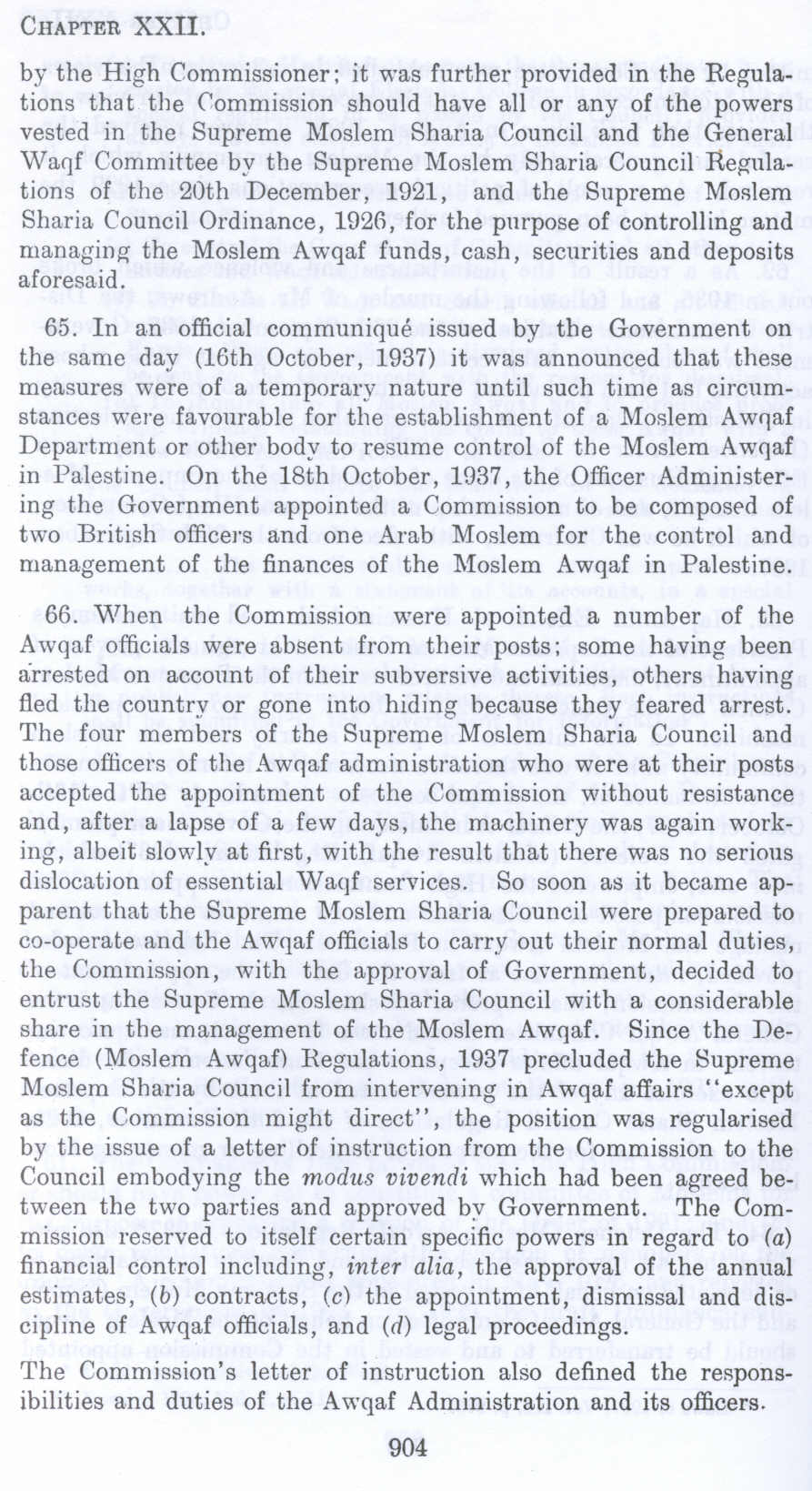| Prev | Next |  |
| Prev | Next |
| PalestineRemembered | About Us | Oral History | العربية | |
| Pictures | Zionist FAQs | Haavara | Maps | |
| Search |
| Camps |
| Districts |
| Acre |
| Baysan |
| Beersheba |
| Bethlehem |
| Gaza |
| Haifa |
| Hebron |
| Jaffa |
| Jericho |
| Jerusalem |
| Jinin |
| Nablus |
| Nazareth |
| Ramallah |
| al-Ramla |
| Safad |
| Tiberias |
| Tulkarm |
| Donate |
| Contact |
| Profile |
| Videos |
British Mandate: A Survey of Palestine: Volume II - Page 904 |
Disclaimer
The above documents, article, interviews, movies, podcasts, or stories reflects solely the research and opinions of its authors. PalestineRemembered.com makes its best effort to validate its contents.


Post Your Comment
*It should be NOTED that your email address won't be shared, and all communications between members will be routed via the website's mail server.
by the High Commissioner: it was further provided in the Regulations that the Commission should have all or any of the powers vested in the Supreme Moslem Sharia Council and the General Waqf Committee by the Supreme Moslem Sharia Council Regulations of the 20th December, 1921, and the Supreme Moslem Sharia Council Ordinance, Ul26, for the purpose of controlling and managing the Moslem Awqaf funds, cash, securities and deposits aforesaid.
65. In an official communique issued by the Government on the same day (16th October, 1937) it was announced that these measures were of a temporary nature until such time as circumstances were favourable for the establishment of a Moslem Awqaf Department or other body to resume control of the Moslem Awqaf in Palestine. On the 18th October, 1037, the Officer Administering the Government appointed a Commission to be composed of two British officers and one Arab Moslem for the control and management of the finances of the Moslem Awqaf in Palestine.
66. When the Commission were appointed a number of the Awqaf officials were absent from their posts; some having been arrested on account of their subversive activities, others having fled the country or gone into hiding because they feared arrest. The four members of the Supreme Moslem Sharia Council and those officers of the Awqaf administration who were at their posts accepted the appointment of the Commission without resistance and, after a lapse of a few days, the machinery was again working, albeit slowly at first, with the result that there was no serious dislocation of essential Waqf services. So soon as it became apparent that the Supreme Moslem Sharia Council were prepared to co-operate and the Awqaf officials to carry out their normal duties, the Commission, with the approval of Government, decided to entrust the Supreme Moslem Sharia Council with a considerable share in the management of the Moslem Awqaf. Since the Defence (Moslem Awqaf) Regulations, 1937 precluded the Supreme Moslem Sharia Council from intervening in Awqaf affairs "except as the Commission might direct", the position was regularised by the issue of a letter of instruction from the Commission to the Council embodying the modus vivendi which had been agreed between the two parties and approved by Government. The Commission reserved to itself certain specific powers in regard to (a) financial control including, inter alia, the approval of the annual estimates, (b) contracts, (c) the appointment, dismissal and discipline of Awqaf officials, and (d) legal proceedings.
The Commission's letter of instruction also defined the responsibilities and duties of the Awqaf Administration and its officers.
904